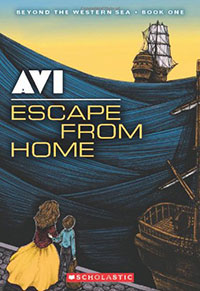 I had been visiting schools that year, importantly, long before the lengthy Harry Potter books were so popular. I had begun asking students what they were reading. A surprising number of them were telling me they were reading novels by Stephen King. The surprise— (to me and to their teachers)—was that these kids were reading truly long books. Moreover, they were reading them very much on their own. The lesson? If they liked the stories, kids would read long books.
I had been visiting schools that year, importantly, long before the lengthy Harry Potter books were so popular. I had begun asking students what they were reading. A surprising number of them were telling me they were reading novels by Stephen King. The surprise— (to me and to their teachers)—was that these kids were reading truly long books. Moreover, they were reading them very much on their own. The lesson? If they liked the stories, kids would read long books.
Having already published books that had become popular—for instance, The True Confessions of Charlotte Doyle—I had become used to the question, “Are you going to do a sequel?” Other books of mine had elicited that same question.
 Knowing that my readers could read long books, I asked myself if I could write a novel that was sufficiently long so that no one would ask for a sequel.
Knowing that my readers could read long books, I asked myself if I could write a novel that was sufficiently long so that no one would ask for a sequel.
My model would be the kind of long Victorian novels I enjoyed reading so much: Dickens, Collins, etc. I also knew that they were long because so many of these books had been serialized.
So, when I set out to write Beyond the Western Sea, it was the serialized novel that was my model. To this end I wrote short chapters, with many, many cliff-hanging endings. The metaphor was that I was setting out bowls of salted peanuts. You just take one more … and more and more.
The book was written and it was long. More than 700 pages. But now the publisher worried that it was too long. They decided to publish it as two books. [Let it be admitted that I, albeit reluctantly, went along with their decision.] Thus, the book was published in two volumes, (and two titles) and in subsequent paperback printings that became the norm—though I tried to get it issued otherwise. But, as far as I’m concerned it is one book and should be read that way.
Then a curious thing happened: Readers, used to trilogies, assumed a third book would be forthcoming. It never happened.
Furthermore, having written a book which was meant to mute requests for sequels, Beyond the Western Sea is the book that gets the most requests for sequels.
The greatest compliment readers can give a writer when they like a book, is that they always want more.